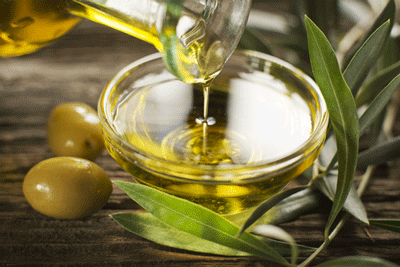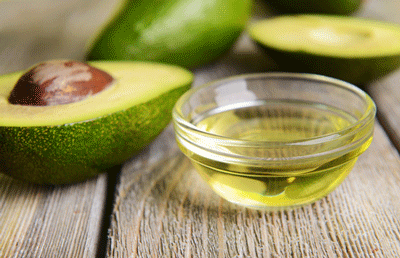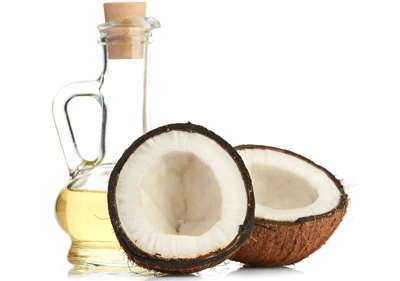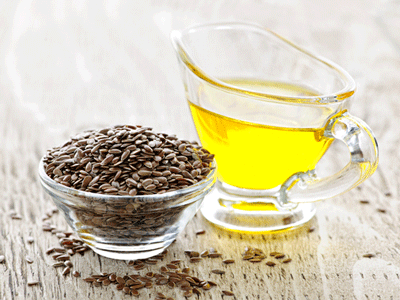|
With all the talk about good fats versus bad fats, the conversation can get a little confusing.
Even more problematic, many manufacturers of unhealthy oils find ways to market themselves as healthy, making the landscape even more difficult to navigate.
(Plus, experts failed to mention that the fat-free food trend just meant we were eating a lot more sugar, which on the whole is much more dangerous than fat.)
We need fat in our diets. They play a role in not only helping us feel full, but also are necessary for transporting essential vitamins throughout our bodies so they can reach our cells.
In this article, we’ll help you cut through all the information and learn which oils are good – everyone should be taking a good-quality fish oil, for example – and which ones aren’t so good.
The good guys are the omega-3 fatty acids, monounsaturated fatty acids (MUFAs) and polyunsaturated fats (PUFAs), which may help lower the risk of heart disease by controlling cholesterol and preventing clogged arteries. They have also been linked to a lower risk of type 2 diabetes because it has been shown in studies to help support healthy insulin and blood sugar levels.
Excessive amounts of saturated fat could increase the risk of blood vessel blockages, and trans fat, on the other hand, are the real bad guys, and should be avoided as much as possible. Saturated fat is found in fatty meats and full-fat dairy including butter, cheese, ice cream and whole milk. Trans fat can contribute to an increased risk of heart attack and stroke and is found in most margarines, shortening and processed foods such as cookies, crackers and snack foods.
Fish oil
Packed with omega-3s including DHA and EPA, fish oil has been shown in many different studies to help maintain a healthy level of inflammation, which when elevated has been linked to a wide range of diseases ranging from cardiovascular disease, autoimmune diseases and rheumatoid arthritis, as well as depression and ADHD.

Dr. Joseph C. Maroon of the University of Pittsburgh School of Medicine told WebMD.com “All these diseases have a common genesis in inflammation”. Maroon is so infatuated with the benefits of fish oil that he co-wrote the book “Fish Oil: The Natural Anti-Inflammatory,” to raise awareness of how the omega-3s in fish oil may help alleviate or ease symptoms of a wealth of different conditions.
Numerous organizations recommend eating at least two servings of fish per week.
We also recommend taking one of our Omega-3/DHA supplements, which offer high-quality fish oil with exceptional purity to help ensure you’re getting all the benefits omega-3s can provide.
Olive oil
Olive oil is a MUFA, and a key component of the Mediterranean diet, considered one of the healthiest ways of eating on earth. In studies, it has been linked to reducing the risk of of type 2 diabetes, Alzheimer’s and heart disease.

Olive oil is a good replacement for other cooking oils and butter in the kitchen, and it also is an excellent choice for heart-healthy salad dressings. But one look on the shelves at the supermarket could leave you reeling if you don’t know which olive oil to choose for which job.
Extra virgin olive oil contains more nutrients than other versions, and has a fruity flavor that makes it a perfect option for both vinaigrettes or for use as a finishing oil over pasta dishes or hummus.
For cooking, however, lower grades of olive oil are a better option, since extra virgin olive oil not only loses its fruity flavor when heated, it also loses many of its key nutrients.
Olive oil can also be used in place of saturated fats in baking. In fact, popular chef Alex Guarnaschelli often uses olive oil in her cake recipes, despite being the executive chef at a restaurant called Butter.
Avocado oil
Avocados and avocado oil are a good way to boost healthy cholesterol levels, making this MUFA an excellent option in a variety of different capacities.

Expert chefs recommend mashed avocado in place of mayonnaise on sandwiches, while the oil itself offers oleic acid, vitamin E and carotenoids including lutein.
It also offers protein and potassium, and can be used for cooking at low temperatures as well as a component in salad dressings.
Coconut oil
While coconut oil is high in saturated fat, it contains lauric acid and helps elevate good cholesterol levels while reducing the risk of heart disease.

It also has a high smoke point, so unlike many healthy oil options, it is excellent for frying.
Flaxseed oil
Flaxseed oil is an especially smart option for vegans, since it contains alpha-Linolenic acid, an invaluable fatty acid. It also offers omega-6 and omega-9 fatty acids and a wealth of nutrients including B vitamins, potassium, magnesium, protein and zinc.

According to studies, it helps boost HDL, or good, cholesterol levels and may help prevent heart disease as well as ease the symptoms of the autoimmune disorder Sjogren’s syndrome, which includes dry eyes because of an inability to produce tears.
While heat destroys the beneficial nutrients found in flaxseed and flaxseed oil, the seeds can be added to smoothies, yogurt, cooked oatmeal and salads, and the oil can be used in sauces and vinaigrettes.
|

 Youre Not Getting Enough Vitamin B6
Youre Not Getting Enough Vitamin B6  Fish Oil Relieves Joint and Back Pain, Reducing Need for NSAIDs
Fish Oil Relieves Joint and Back Pain, Reducing Need for NSAIDs  Being Fit does not always mean Healthy
Being Fit does not always mean Healthy 
 Youre Not Getting Enough Vitamin B6
Youre Not Getting Enough Vitamin B6  Fish Oil Relieves Joint and Back Pain, Reducing Need for NSAIDs
Fish Oil Relieves Joint and Back Pain, Reducing Need for NSAIDs  Being Fit does not always mean Healthy
Being Fit does not always mean Healthy